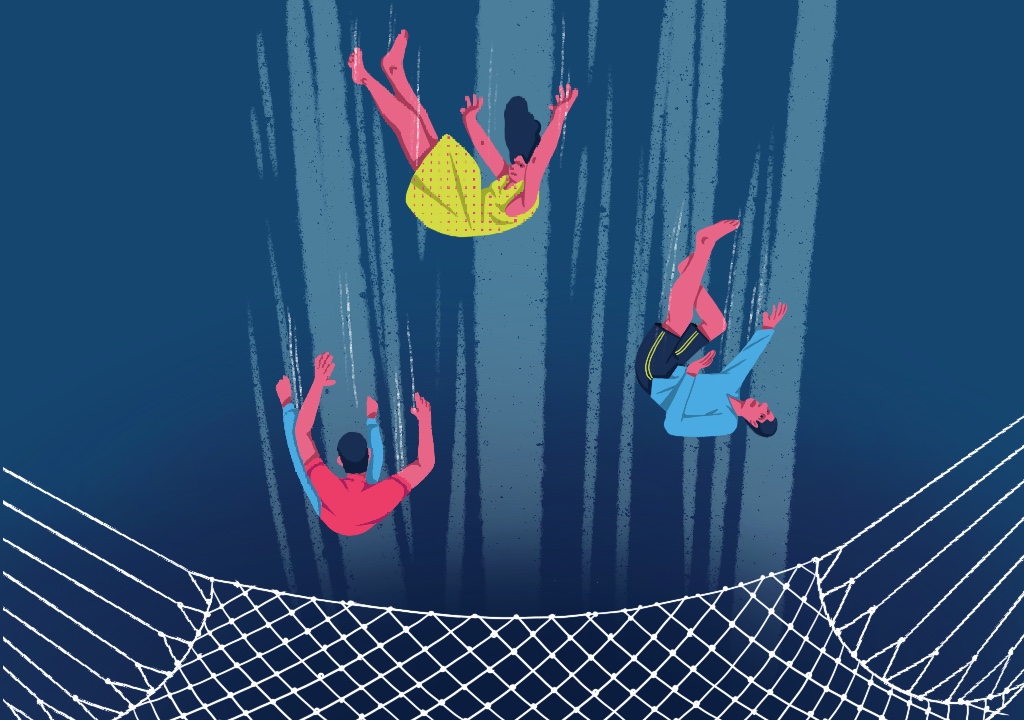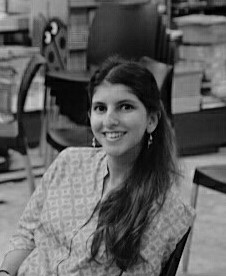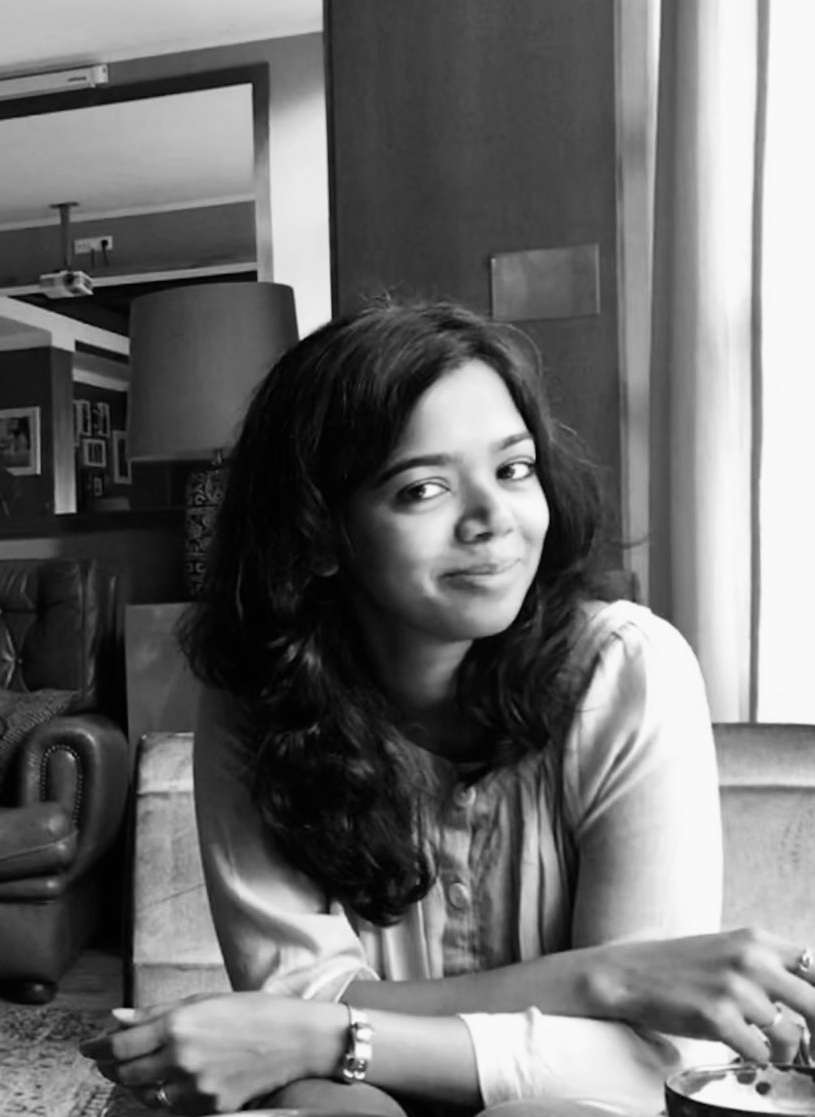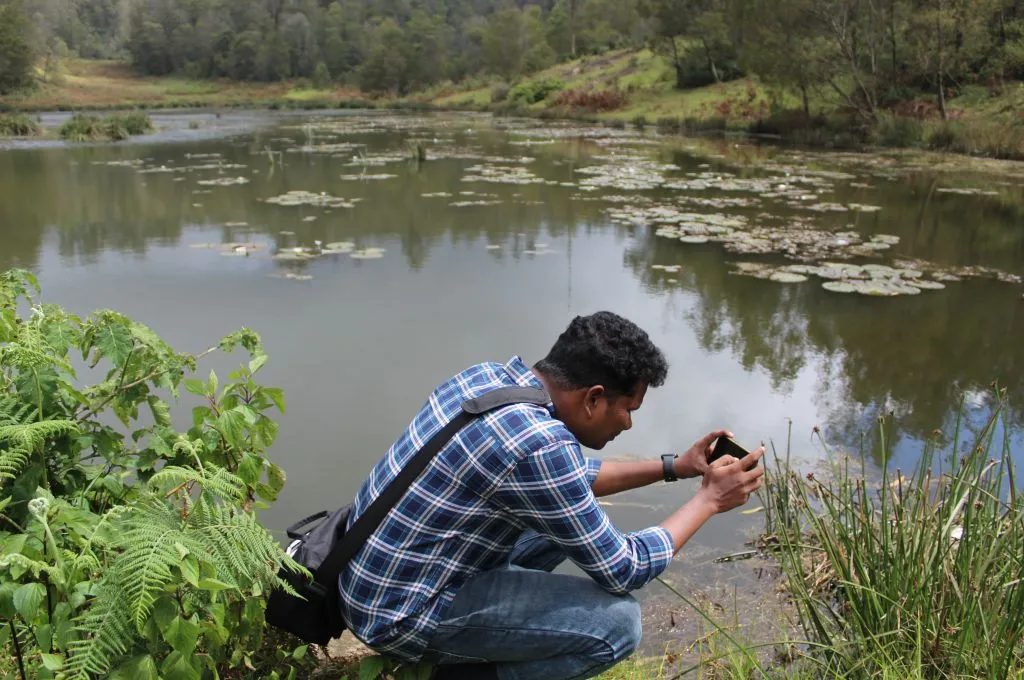Harsh Mariwala is the chairperson of Marico Limited and the founder of Mariwala Health Initiative (MHI), and Raj Mariwala is the director of MHI, which provides grants and strategic support to organisations and collectives to create access to mental health services for all.
In this interview, they discuss what the redistribution of wealth means to them, why they decided to fund mental health—a deeply intersectional and intersectoral issue—and how using a rights-based approach has the potential to change philanthropy’s top-down approach.
Could you tell us about your philanthropic journey?
Harsh: My life has gone through three phases: learning, earning, and giving. Growing up, my focus was on learning, and later on earning. But after I built my career, I began to think about how I could give back. Everyone wonders what their purpose is at some point.
When it comes to giving, there are two ways of going about it. One is corporate social responsibility, which is giving back from the company’s side. This is a separate journey. I wanted to also focus on personal social responsibility—giving back from the personal side—and I was very clear that I didn’t just want to do this monetarily. I wanted to give my time and energy as well. When you start doing this—giving not just money, but engaging in more active giving—the kind of satisfaction you get is much more. There’s also a higher degree of ownership, particularly in terms of how you think about sustaining your giving. This is not to say that everybody must invest time, I realise that not everybody has the liberty to give their time. So, if somebody has money and not time, they can still do their part.
It’s also important to choose an issue that you are passionate about. If you don’t have passion, you may have time, but the willingness to give it may not be ignited.
Raj: Put simply, I see philanthropy as an exercise in social justice, in redistribution of wealth. My privilege is not limited to wealth and money alone; I have an accumulation of far more privileges. It’s important to know who is gatekeeping wealth, and unless I invest in challenging the structural frameworks that have put me here, my philanthropy isn’t good enough. Using a welfare approach to philanthropy might be top-down, but using a human rights-based approach and examining social inequality has the potential to change that around.
Put simply, I see philanthropy as an exercise in social justice, in redistribution of wealth.
If I want to challenge a top-down philanthropic approach, I need to hold myself accountable as a funder. Am I only using my social networks to find organisations to fund? How inclusive is my work? How many women, or Dalit, Bahujan, and Adivasi people are we serving? Does my advisory board include people from the margins that I want to serve?
Accountability depends on your principles of giving.
My approach to philanthropy might differ from my father’s in terms of language, but we found a meeting point when we decided to focus on mental health.
So, how did you come to identify mental health as a focus area?
Harsh: From the outset, I knew I didn’t want to make a donation to a hospital or school that would be managed by somebody else. I wanted to give actively, to an issue where I could really add value. My passions lie in the area of entrepreneurship and preventive health. When Raj and I started discussing areas we could support, we learnt that mental health is an area that is heavily neglected by philanthropy. It is underserved and underfunded, and I saw a pioneering opportunity for us to enter this space.
Apart from supporting existing actors in this sector, we wanted to create newer capacities, fund research, and focus on the intersection of mental health and other issues—gender, for example. We also wanted to create learning mechanisms and identify synergies between the organisations we partner with, so that they can learn from each other.
Raj: As my father said, it started out as a conversation, after which we reached out to a range of mental health professionals to learn more. We saw that there’s so much work happening in the mental health field already, and decided that there was no point in reinventing the wheel. Rather than setting up our own services, we wanted to build the capacity of existing services and help them scale.
We took over a year to set up Mariwala Health Initiative (MHI), because we wanted to establish what our approach was going to be, what our guiding principles were, and which pillars we would build on. Our first partner was iCall, a psycho-social helpline which started as a field action project at TISS. Soon after this, we identified three other partners doing stellar work in mental health. We learnt more about mental health from these four partners, and those learnings enabled us to jump from working with four partners in 2016 to the 17 partners we work with today. Taking the time to learn from our partner organisations also enabled us to take a few risks with our funding.

There are various oppressions within mental health that we must be aware of, and we must be mindful of whether we’re complicit in creating them. | Illustration: Shirish Ghatge
What were some of the challenges and learnings that came with funding mental health?
Raj: If we chose to fund education or hold health camps, access to numbers is much easier, but with mental health, quantifying impact is more difficult.
We work with a wide variety of stakeholders—including activists, nonprofits, and government representatives. Bringing these stakeholders to the same table, when they don’t always want to talk to each other, is very hard. But this dialogue needs to happen. If my philanthropy is social justice-led and focuses on structural frameworks, I have to support civic participation, activists, and people’s movements.
At the same time, I also have to work with the government. It’s my role to identify how to bring them together. For example, according to the Mental Health Care Act of 2017, every state should have a State Mental Health Authority. I have access to technical experts who can help the government set these up, and so it’s my role to connect these actors as well as figure out how to get mental health experts and activists onto these bodies.
Dissent with diplomacy is extremely hard, but it’s really about doing it strategically.
Dissent with diplomacy is extremely hard, but it’s really about doing it strategically. As a mental health advocate, I’m accountable to point out that the government’s transgender rights bill is not okay, or that the mental health situation in Kashmir is terrible.
I may have to bide my time or hold my tongue sometimes, but it’s important to speak out.
Mental health is also a deeply intersectional and intersectoral issue. The Mental Health Care Act passed in 2017 laid down a very strong anti-discrimination clause, but there are various oppressions within mental health that we must be aware of, and we must be mindful of whether we’re complicit in creating them.
For example, Section 377 was struck down in 2018. But there’s still a major gap in mental health when it comes to the LGBTQ community, as the approach is still largely rooted in socio-cultural norms and the hegemony of cis-heterosexuality. And so, this bias has to be approached in multiple ways. We have programmes that work on peer support practices with LGBTQ communities, and have also created a programme called Queer Affirmative Counselling Practice, along with working on curricula changes with medical colleges in Maharashtra when it comes to gender and sexuality.
How would you define success for MHI?
Harsh: We’re still in the early days of our journey, and have a long way to go in terms of what we want to achieve. We’re getting good traction now, and that will help us accelerate our journey as we go forward, but I don’t think we should get to a point where we label ourselves as having been a success. Yes, we should be confident that we are on the right track and are creating impact, but if we say that we are already successful, there isn’t any motivation to go further.
There is still a lot to be done. If we are able to influence the government—or even more funders—to give more support and funding to mental health, that is one measure of success.
Raj: An immediate short-term goal for me would be to get other funders involved in mental health, particularly more rights-based funders. A second goal would be to help people who work in health or education realise that mental health is intersectoral, and that they need to introduce facets of it into their work.
According to you, what can philanthropy in India do differently?
Raj: When we were fighting for independence, there were plenty of industrialists who donated to the revolt against British rule. I find that passion and commitment to rights and freedom missing today, and I hope it returns.
If you build for margins, the centre will get covered. If you build for the centre, the margins will never get covered.
I would also like to see more philanthropists focusing on social justice. If you build for margins, the centre will get covered. If you build for the centre, the margins are never going to get covered. If we don’t change the frameworks for philanthropy, the status quo will persist.
I’d like to live in a society where we redistribute wealth such that we can get rid of philanthropy altogether.






